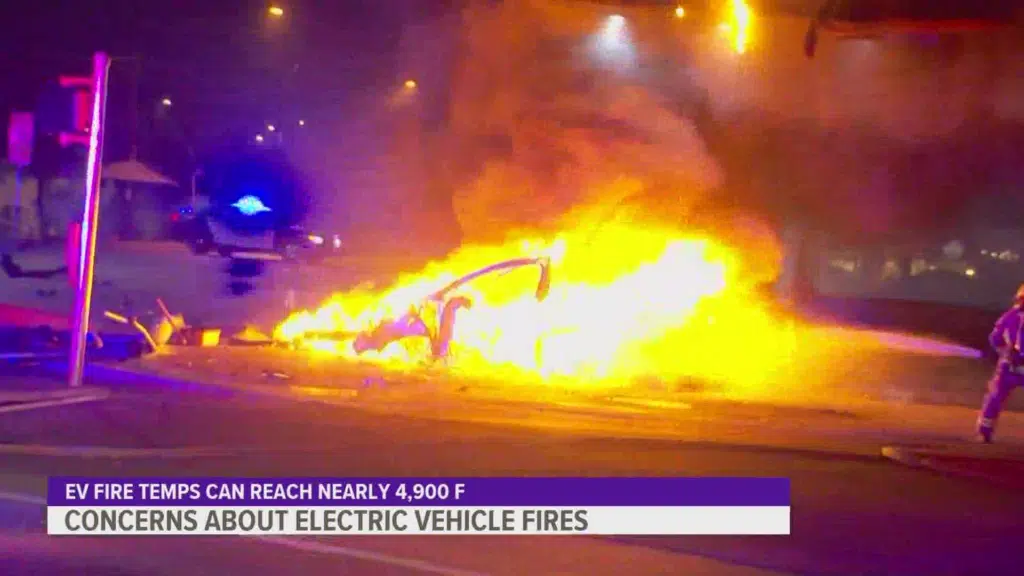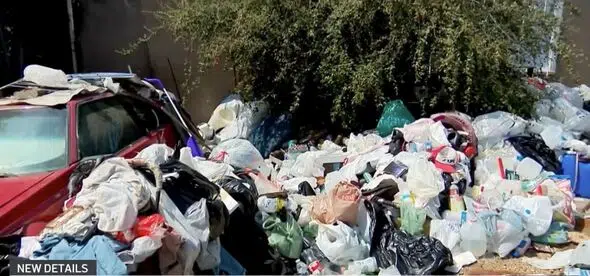
How California’s Baseless Obsession May Be Affecting Your Car Prices
California may be poisoning the automotive industry in your state, and it’s time for it to stop. On Wednesday, the Supreme Court heard arguments in a case that could undermine California’s unique authority to regulate the types of vehicles Americans can drive, even in states far from Sacramento.
Diamond Alternative Energy v. Environmental Protection Agency questions whether fuel companies can legally contest California’s Clean Air Act waiver, a special permission granted to no other state.
Former Trump officials are joining the case to back the challenge, which they believe could liberate Americans from California’s excessive regulatory overreach.
Under a special provision of the 1970 Clean Air Act, California is the only state that has the unique ability to request permission to establish stricter vehicle emissions standards than those set by the federal government. Other states can either adhere to the federal standards or adopt California’s more stringent regulations.
Former officials from the Trump administration revealed the shocking discovery about California’s unfair but significant influence on the country. They uncovered the 50-year-old legal loophole costing everyday Americans thousands of dollars in seventeen states and the District of Columbia
“The founding fathers would be rolling over in their graves if they ever thought the government would be in the business of dictating the type of transportation that Americans can choose,” Tom Pyle, president of the Institute for Energy Research, told the Daily Caller News Foundation.
Many Americans are unaware that a regulatory agency in California determines which types of vehicles can be sold in 17 states and the District of Columbia.
California has leveraged its regulatory authority to promote its aggressive climate agenda nationwide, particularly through its “Advanced Clean Cars II” program. This program mandates that all new cars, trucks, and SUVs sold in the state be zero-emission by 2035.
During Donald Trump’s first term, his administration partially revoked California’s regulatory waiver in 2019. However, Joe Biden’s Environmental Protection Agency swiftly reinstated this waiver in 2022, allowing California to continue shaping national auto policy.
Amy Gunasekara, the EPA’s Chief of Staff during the first Trump administration, highlighted a troubling aspect of California’s emissions regulations: Americans in states that adopt California’s standards effectively subsidize California’s decisions.
The economic impact is significant. Auto manufacturers are faced with the choice of producing more expensive electric vehicles and hybrids or purchasing special “credits” from competitors who exceed the mandated requirements.
According to the California Air Resources Board, manufacturers must produce a certain number of zero-emission vehicles (ZEVs) and plug-in hybrids each year, based on the total number of cars sold in California by that manufacturer.
This imposes an unseen tax on consumers throughout America who seek affordable gasoline-powered vehicles.
“The ultimate loser here is the consumer,” Gunasekara concluded.
The Supreme Court case may determine if oil and gas companies can challenge California’s waiver, a right denied by lower courts.
According to Gunasekara:
“This would be the first time that an administration that has been very scrutinous of this waiver authority in the past that would also be calling the shots from the Department of Justice’s legal strategy perspective. The merits have never actually been challenged in the courts, and that’s because the parties bringing the suit haven’t gotten a standing test.”
“If California is allowed to keep the waiver, they will control our entire automobile transport policy,” warned former EPA official Myron Ebell.
Since the Clean Air Act was established, the EPA has granted California over 75 waivers, enabling the state to regulate America’s auto industry further.
Ebell referred to the idea as a “naive belief” that the government can instruct automobile manufacturers to create more efficient engines and cars that achieve better mileage without raising prices or compromising engine performance. As a result, Americans are left with fewer choices and higher prices.
Even if the Supreme Court doesn’t side with Diamond Alternative Energy, officials from the Trump administration have alternative plans to free Americans from California’s strict regulations.
Energy experts indicate that the waiver could still be reversed through a regulatory review, though this process will take some time within both the courts and the Trump administration. They suggest that congressional action via the Congressional Review Act would be the quickest way to eliminate California’s control.
Gunasekara said manufacturers are burdened by California’s strict regulations, which compel most companies to adhere to these extreme mandates nationwide instead of creating different vehicle lines for various states.
“It would be huge if the Supreme Court finds that these parties do, in fact, have standing to challenge the California waiver,” she said.
This case is critical in the fight for Americans’ right to choose affordable vehicles that meet their needs, instead of California’s radical climate agenda.
This past Tuesday, Larry Elder, Radio host and former California gubernatorial
candidate released his new documentary on the truth about electric vehicles. Elder revealed troubling truths: EVs require more energy to manufacture, provide less freedom for drivers, empower America’s leading global rival, and may harm the environment more than help it.
In his film “Electric Vehicles: The Good, the Bad and the Ugly,” Elder states:
“Mass delusion has always fascinated me. Scientists, media people, politicians, academics have convinced the average person that our climate is in peril and if we don’t do something real fast to get us off of fossil fuels, we’re going to be in trouble. I just, intuitively, am skeptical about that.”
In the film, experts tell Elder that contrary to the popular narrative, fossil fuels haven’t made life worse for humans or the environment.
Alex Epstein, an energy expert and author of “The Moral Case for Fossil Fuels,” tells the radio host that climate-related disaster deaths have decreased by 98 percent over the past century, with fossil fuels being “a key contributing factor.”
“Fossil fuels haven’t taken a safe climate and made it dangerous; they’ve taken a dangerous climate and made it safe.”
Ronald Stein, an energy policy adviser for The Heartland Institute, says:
“Everything that needs electricity is made with the oil derivatives manufactured from oil.” His examples include iPhones, defibrillators, coffee makers, x-ray machines, pencils, and much, much more. He challenges people to:
“Try to identify something that was not made with fossil fuels,” and warns that without fossil fuels, consumers will face “shortages and inflation in perpetuity.”
“They say they’re green, they say they’re emissions-free,” Diana Furchtgott-Roth, director of The Heritage Foundation’s Center for Energy, Climate, and the Environment, tells Elder. “They’re not emissions-free because they’re recharged by electricity. It’s generated by oil and coal, and other kinds of power like that.”
There’s more bad news: EVs still require carbon emissions, and consumers tend to recycle their batteries less.
Anna Stefanopoulou, a professor of mechanical engineering at the University of Michigan, indicates that while consumers recycle most materials in traditional cars, they only recycle about 5 percent of electric vehicle batteries.
When Elder asked about the EV recycling industry, she responded, “What recycling industry?”
Yet the dirtiest secret about EVs involves mining the raw materials.
Elder Notes:
“A brutal reality is playing out in silence along our push for EVs and other so-called renewables.”
His film depicts the harsh conditions in the Shabara artisanal mine located in the Democratic Republic of the Congo.
“At least a fifth of the Congo’s cobalt production is mined by hand under hazardous conditions that flirt with death and disease daily.”
UNICEF has estimated that around 40,000 children work in the mines of southern Congo.
Rep. Pete Stauber, R-Minn., tells Elder that he sponsored amendments preventing the U.S. from purchasing “one ounce of critical minerals mined by child slave labor”—amendments that Democrats opposed.
I agree totally with Elder’s label of the EV craze as a “Mass Delusion.” However, it is only a piece of an even larger “Mass delusion,” that is, climate change as a whole. Nothing about electric vehicles is necessary, and it is despicable for California to be able to punish hard-working Americans using this man-made myth.



